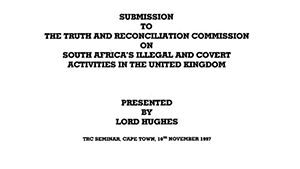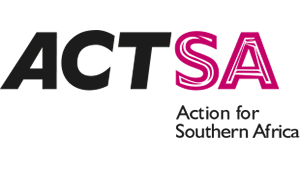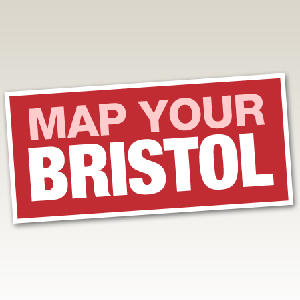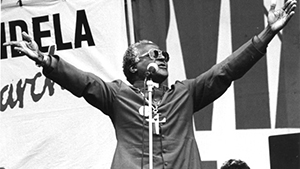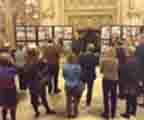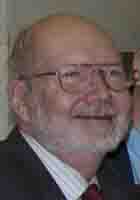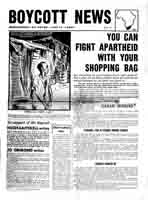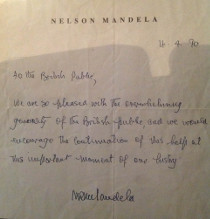For three decades the apartheid government organised illegal and undercover activities within the UK against the Anti-Apartheid Movement and the liberation movements.
It launched a bomb attack on the ANC’s London headquarters, and sponsored arson attempts and burglaries at the AAM, ANC and SWAPO offices. It tried to infiltrate anti-apartheid organisations and spread misinformation about their campaigns. Officials at South Africa’s London embassy were implicated in illegal arms deals. In 1997 these activities were documented in evidence given to the South African Truth and Reconciliation Commission by the AAM Archives Committee. You can read the submission here.
Bristol Action for Southern Africa activists held their annual sponsored walk on Sunday 14 June. This was the 35th walk since AAM activists first raised funds for the Solomon Mahlangu Freedom College in 1980. This year’s walk supported the Amai Mussanhane Women’s Project in Beira, Mozambique; Treatment Action Campaign, South Africa; Swazi UDF; and ACTSA’s Dignity.Period appeal.
‘Map your Bristol’ is an innovative project illustrating Bristol’s rich history of community action. You can pinpoint sites of anti-apartheid action and read about the campaigns.
See where activists threw nails on the pitch to stop the rugby game between Western Counties and the all-white South African Springboks in 1969. View the many shops picketed by anti-apartheid campaigners asking shoppers to boycott South African goods. See the Shell Petrol Station where Bristol AA Group organised a 24-hour picket in protest against Shell’s involvement in South Africa. Visit ‘Map your Bristol’ here
Witness seminars
‘Free Nelson Mandela’ – Rivonia trialists Rusty Bernstein and Ahmed Kathrada share their memories of Mandela. Mandela’s biographer Anthony Sampson recalls how for 20 years he was almost forgotten.
Parliamentarians and ACTSA supporters came together on 12 January for a special showing of the ‘Forward to Freedom’ exhibition in the House of Commons.
Former Cabinet minister and anti-apartheid activist Peter Hain MP paid tribute to all those who had taken part in the struggle for freedom in Southern Africa. Frank Dobson MP, who served as Health Minister in the 1997–2001 Labour government, recalled that the Boycott Movement held its first meeting in Holborn Hall in his Holborn and St Pancras constituency. Frank served on the AAM’s Executive Committee in the 1980s. The event was hosted by ex-AAM Chair Lord Hughes of Woodside and Sheffield Central MP Paul Blomfield, long-serving former secretary of Sheffield Anti-Apartheid, one of the most active of the AAM’s local groups.
Peter Brayshaw’s sudden death on 18 December has shocked and saddened the friends and comrades who worked with him over many years for freedom and equality in Southern Africa.
Peter’s first political activity was as an LSE student in 1967 when he protested at the appointment of the University College of Rhodesia’s former Principal as Director of the LSE. In an interview for this website recorded last year, he recalled how he narrowly escaped a prison sentence after being arrested during a student demonstration on Rhodesia in 1969.
In 1975, Peter travelled to Angola with his partner Tracy Warne, around the time that MPLA declared independence. They were caught up in fighting between MPLA and FNLA in what he later described as ‘a life-changing as well as life-endangering experience’. From then on Peter’s deepest political commitment was to the struggle for liberation in Southern Africa, and especially in Angola and Mozambique.
The March month of boycott action in 1960 saw the highest levels of anti-apartheid activity in Britain until the sanctions campaign of the mid-1980s. The Boycott Movement published three issues of BOYCOTT NEWS, charting the progress of the campaign.
Issue 1 printed the seminal appeal by South African leaders Chief Albert Luthuli, GM Naicker and Peter Brown for an international boycott of apartheid goods. Issue 2 featured statements of support from Labour and Liberal Party leaders Hugh Gaitskell and Jo Grimond. Issue 3 recorded the ANC’s momentous decision after the Sharpeville massacre to move from asking individuals to boycott South African goods to calling for UN international sanctions against South Africa. Altogether BOYCOTT NEWS sold over 250,000 copies. You can read them here.
Read this handwritten letter from Nelson Mandela to the British public expressing thanks for their ‘overwhelming generosity’.
The letter was written on the day Mandela attended the 16 April 1990 Wembley concert held to celebrate his release from prison on 11 February.
Take a look at our new Memories Section. We've contributions from former MP and Anti-Apartheid Movement Chair Bob Hughes and PCS Vice-President and community and human rights activist Zita Holbourne.
You can find it here. Bob Hughes describes the hard work of campaigning in a pre-digital age without the internet, email or social media, and Zita describes her introduction to anti-apartheid campaigning and her experiences of racism when she first visited South Africa and how this has motivated her.
There will be more to come and you are invited to make your own contributions by emailing us at
Apologies - this evening has been postponed, and will hopefully take place later this year.
Forward to Freedom - an oral history project
As well as presenting the history of the movement, the evening will focus on the oral history part of the project, the selection process, training, and the practicalities. We will have input from interviewers, interviewees, the Anti-Apartheid Movement Archives Committee and the project manager.
If you would like to attend please email with a subject heading 'oral history evening'.

